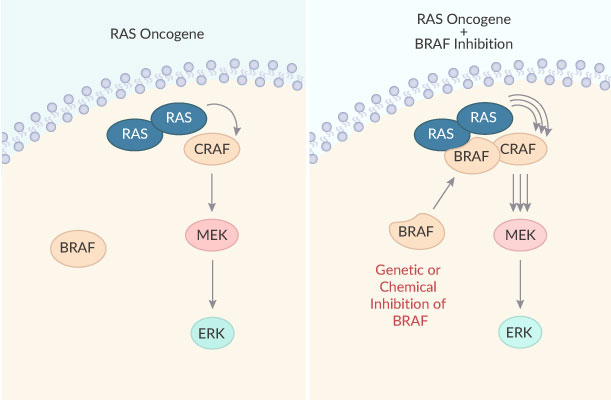The mitogen-activated protein kinase pathway regulates lots of multiple biological functions. In addition, RAF inhibitors activate the MAPK pathway. Interestingly, the MAPK pathway in turn induces the RAS proteins to exchange GDP for GTP.
The RAF proteins are serine-threonine specific protein kinases. They activate the MEK/ERK cascade downstream of RAS, and regulate cell responses to extracellular signals. There are three RAF proteins in cells, ARAF, BRAF and CRAF. Importantly, RAF kinases are the major KRAS oncoeffectors.

The compound is a type 2 ATP-competitive inhibitor, which potently inhibits RAF kinases with high selectivity. RAF709 shows antitumor activity in tumor cells harboring BRAF or RAS mutations. Additionally, it demonstrates a direct pharmacokinetic/pharmacodynamic relationship in tumor models harboring KRAS mutation. Not only that, the novel inhibitor also represents a next generation RAF inhibitor with unique biochemical and cellular properties. Morever, RAF709 selectively inhibits oncogenic signaling and proliferation in tumor cells. Not only that, RAF709 also exhibits increased potency in cancer cell lines. Notably, these cancer cell lines harbor BRAF or RAS mutations. Besides, RAF709 in combination with MEK inhibitor leads to enhanced anti-tumor activity.
In conclusion, RAF709 is a potent, selective and efficacious RAF inhibitor, which targets RAS mutant cancers. This potent inhibitor is highly kinase selective and potent in Calu-6 cell line. RAF709 demonstrates dose-dependent tumor regressions in the K-RAS mutant Calu-6 model with no significant body weight loss.